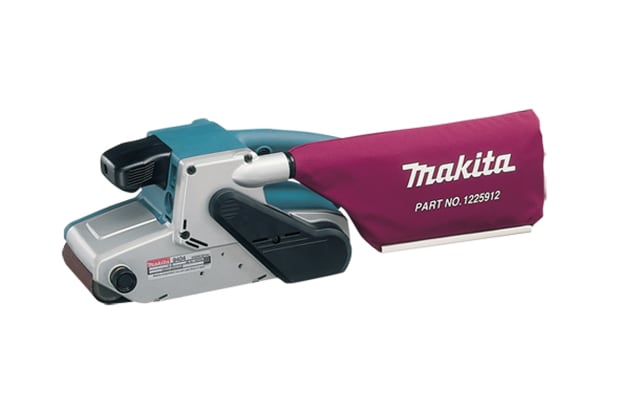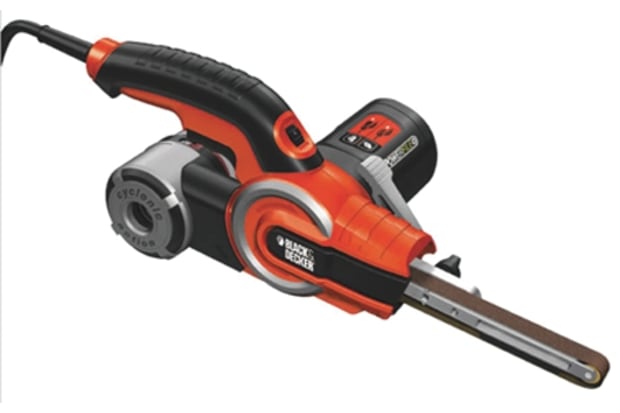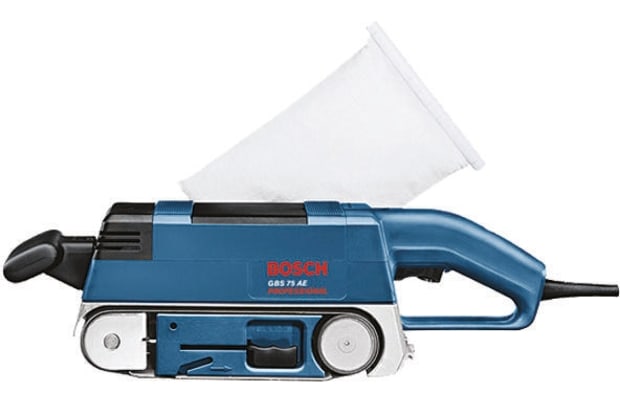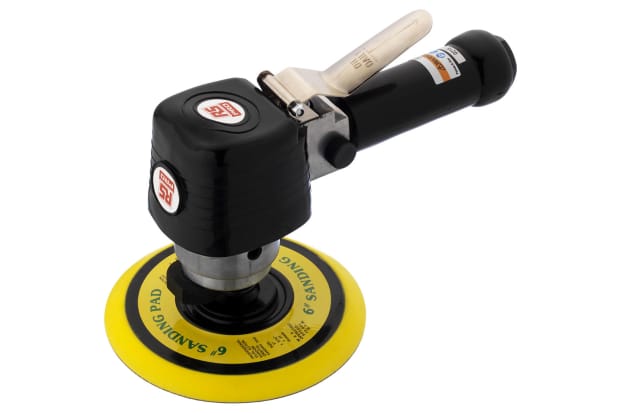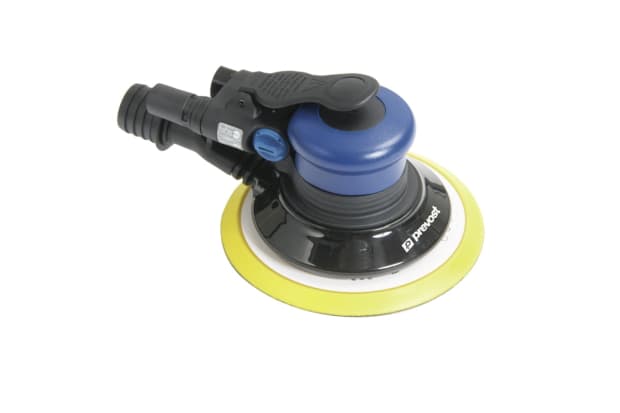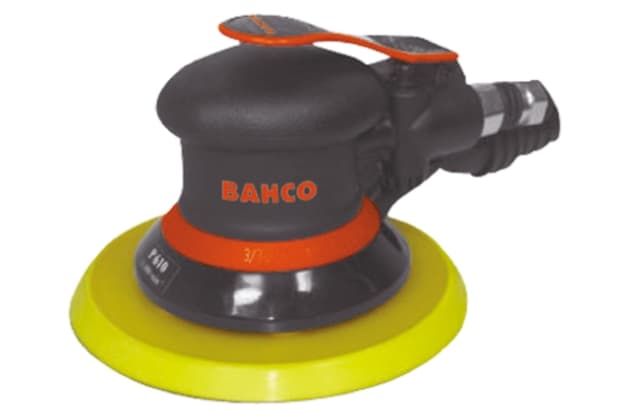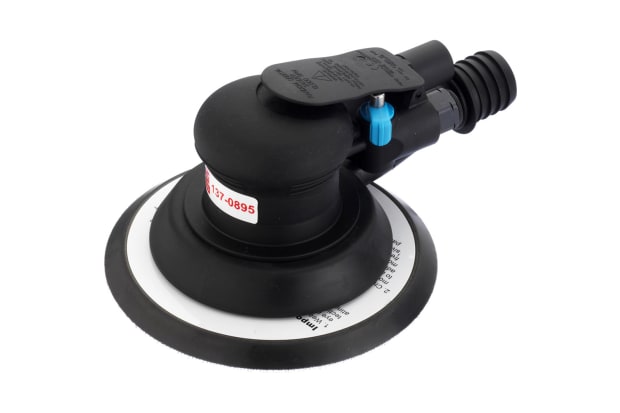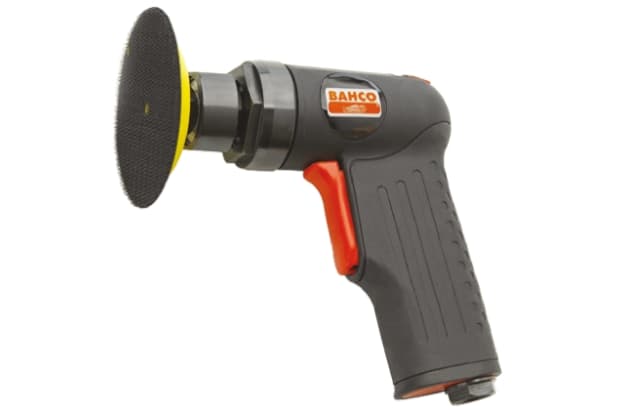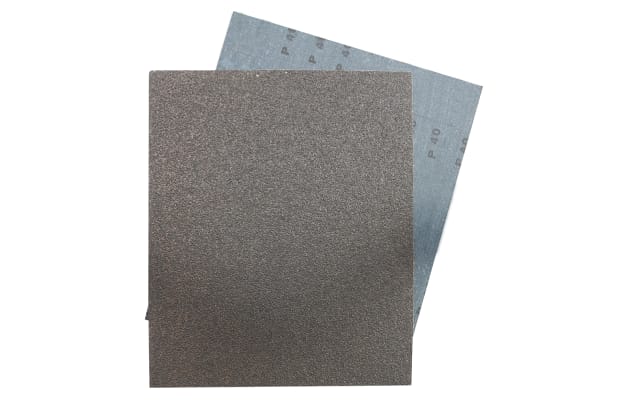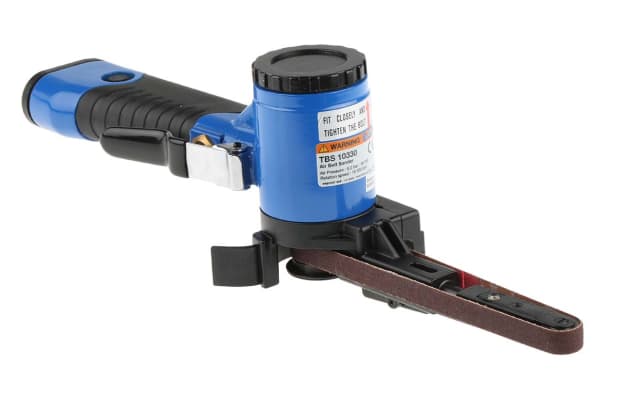- เผยแพร่เมื่อ 7 มี.ค. 2566
- แก้ไขครั้งล่าสุด 29 ส.ค. 2566
- 8 นาที
A Complete Guide to Sanders
Discover what different types of sander are available and explore their ideal uses in our handy guide to sanders.

What are Sanders?
Sanders are a type of power tool widely used within certain industries. They are used to smooth the surface of different substances via the application of sandpaper to produce abrasion. The sandpaper is attached to a rotating motor.
Most sanders are electrical, but some are powered by compressed air. It is possible to get both handheld and workbench sanders. In the latter case, the object requiring sanding is applied to the sander, whereas handheld sanders are typically brought to the object.
As with most power tools, sanders are available in a variety of designs to suit different uses. The best type of sander for the project will largely depend on the project itself.
Types of Sanders
There are multiple different types of sander, each best suited to different purposes and applications. Below are some of the key sander types:
Belt Sanders
What is a Belt Sander?
This power tool combines a high-speed electric motor with a revolving band of abrasive sandpaper. Belt sanders are typically used to shape wooden objects as well as softer metals such as aluminium.
The belts are usually 3-4 inches wide and 18-24 inches in length, while the sandpaper itself can be found in a range of different grits (strengths), ranging from very fine to extremely coarse. Slim belts are also available for particularly fine work.
Both handheld and stationary workbench sanders are available. The latter is best suited for use with metals like aluminium, which can clog handheld sanders. Many models also include bags for capturing shavings and sawdust or vacuum systems for the same purpose.
What are Belt Sanders Used for?
Belt sanders are widely used by professionals working in industrial settings, particularly in the manufacturing sector. However, belt sanders are also employed by hobbyists and DIY enthusiasts who typically use them for applications including sharpening tools, removing paint or varnish, and sprucing up decking or outdoor furniture. Models designed for heavy-duty industrial use are characteristically larger and may also feature longer cables and variable belt speeds.
Popular Belt Sander Brands
Makita
Explore Makita belt sanders and discover the model best suited to the needs of your project.
Black & Decker
Black & Decker belt sanders are high-quality and durable. Shop the full range online with RS Components.
Bosch
View belt sanders from leading brand Bosch and discover the ideal model for your requirements.
All Belt Sanders
Browse the complete range of belt sanders and shop online with RS Components today.
Air Sanders
What are Air Sanders?
Air sanders are tools powered by compressed air and they typically feature rotating, interchangeable pads as opposed to a sandpaper belt. Different attachment methods are used, including easy hook and loop, thread mounts, and elasticated bonnets. A variety of pads are also available, including options designed specifically for applications such as gritting, buffing, and polishing. It is also worth noting that different models also feature varying pressure ratings.
What are Air Sanders Used for?
They are ideal for applying a high-quality finish to wood and metal. Typical uses for air sanders include woodworking, sanding car bodywork, and applying a new finish to tables and other types of furniture. Such tasks would likely be highly time-consuming and labour-intensive without the assistance of an air sander.
Several different types of air sander are available, including:
- Dual-action sanders
- Belt sanders
- Angle sanders
- Compact disc sanders
- Dust-free sanders
When using an air sander, it is recommended to check the hose connection for potential leaks or damage before use to avoid hose failure while the tool is being used.
Orbital Sanders
What is an Orbital Sander?
Also known as finishing sanders, these tools are a widely-used type of handheld air sander. The name derives from the tool’s abrasion pads, which move in a light, rotating or orbiting motion over the surface of the object they are applied to sand. Sandpaper is attached to the abrasion pads using spring-loaded clamps.
Orbital sanders are designed for fine work, contrasting the greater force typically supplied by belt sanders. They deliver a smooth finish on both flat and round edges, without the swirl marks sometimes left by other types of sanders. They are also a good choice for removing putty as they present little risk of causing accidental damage to the object.
There are two principal types of orbital sander. These are:
- Orbit Sheet Sanders – making use of standard sandpaper, these accessible tools typically feature variable speeds, low vibration, and dust disposal systems
- Random Orbital Sanders – these models are designed to provide a highly smooth finish by applying a circular sanding pad (typically five inches in diameter) to the work surface in a random manner, via a spinning shaft which oscillates off-centre. The purpose of this is to help avoid the uneven spotting typically produced by other types of sanders. It also means that the user can ignore the direction of the wood grain
How to Use an Orbital Sander
The following steps simply detail how to use an orbital sander:
- Switch on the tool and allow the pad to reach its full speed before starting to apply it to the work surface
- Apply the pad to the work surface and move it with a left-right action
- Avoid pressing down while sanding – only a light amount of pressure should be applied. Ensure that no more than a third of the pad leaves the work surface while you are sanding
- Do not turn the sander on its side if you need to access difficult to reach spots – instead, reposition the object you are working on, where possible
- Remove the sander from the work surface before switching it off
Popular Orbital Sander Brands
RS Pro
RS Pro, our in-house brand, offers a range of orbital air sanders. Browse the full range today.
PREVOST
Orbital air sanders from PREVOST are ideal for a range of applications. Click through to browse the full range.
Bahco
Explore orbital air sanders from leading brand Bahco and discover the model best suited to your requirements.
All Orbital Sanders
View our full range of orbital air sanders online today and shop with RS Components.
Detail Sanders
Detail sanders are a distinct type of sanding tool. Essentially, they are a smaller variation of the orbital sander, but they also feature interchangeable triangular abrasion pads, typically resembling a domestic iron in shape, along with specialised sandpaper.
Specifically designed for accessing tight corners and areas which would otherwise be difficult to reach, detail sanders are also ideal for smoothing awkwardly-shaped objects such as chair legs. As with other types of sanders, both coarse and fine grit pads are available.
When using a detail sander, it is important to wear a mask and ensure the area is adequately ventilated. This is because these tools generate fine-grained dust and particles which could be hazardous to health if inhaled. Also, detail sanders produce significant amounts of vibration so it is advisable not to use them for extended periods of time.
FAQs
Which Sander is Best for Walls?
Disc sanders are a good choice for walls as they rotate at a high speed, providing powerful smoothing over large areas. It is advisable to start with a coarser sanding pad to tackle rougher spots before switching to a finer grit for a smooth finish.
How Do You Change a Belt in a Belt Sander?
The precise process varies according to the particular model, but the fundamental steps for changing a belt in a belt sander are relatively straightforward:
- Release the tension lever holding the belt in place
- Pull off and discard the old belt
- Prepare the new belt and slide it into place on the sander
- Reapply the tension lever
Can You Use an Orbital Sander on Wood?
It is possible to use an orbital sander on wood if your project requires precision and close attention to detail. Orbital sanders are an ideal choice for fine work with wood and they are widely used by professionals including joiners and carpenters. However, if you are working with a large, rough surface, a higher-powered belt or disc sander will likely be a better choice.
Related Products
Air Sanders
Browse our full range of air sanders, including both belt and orbital air sanders, and discover models from leading brands.
Power Tools
Whether you are looking for drills, angle grinders, heat guns, or electric screwdrivers, we stock a wide range of power tools.
